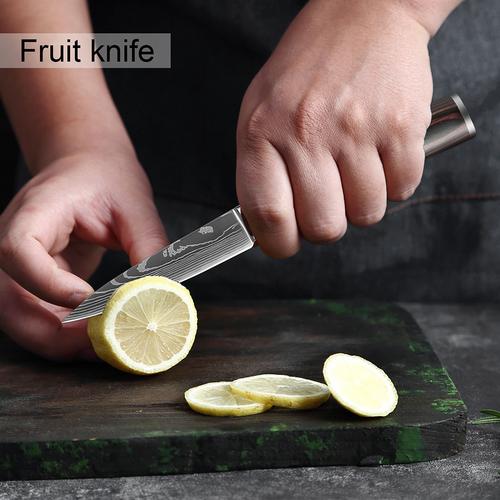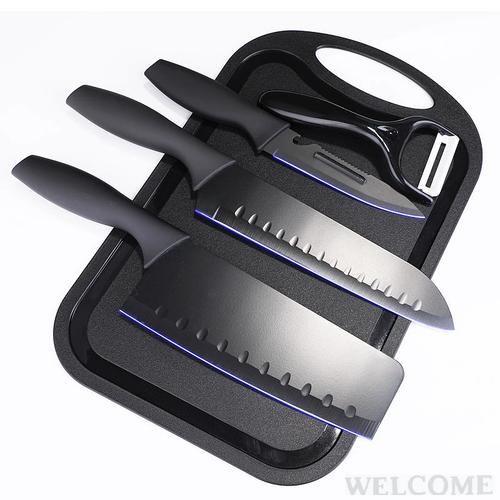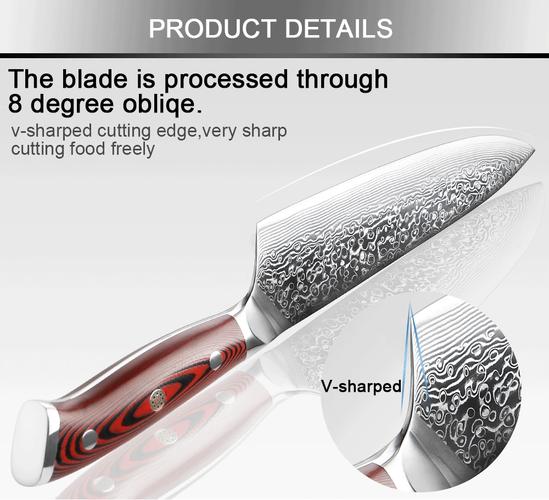

Views: 222 Author: Ella Publish Time: 2025-05-04 Origin: Site








Content Menu
● 2. Shun
● Choosing the Right Japanese Knife Set
● Caring for Your Japanese Knives
● FAQ
>> 1. What makes Japanese knives different from Western knives?
>> 2. How should I care for my Japanese knife set?
>> 3. Are Japanese knives suitable for left-handed users?
>> 4. What knives should I start with in a Japanese knife set?
>> 5. Can I sharpen Japanese knives at home?
Japan is world-renowned for its exceptional craftsmanship in knife making, blending centuries-old traditions with modern technology to create some of the sharpest, most durable, and beautifully designed kitchen knives available. For chefs and cooking enthusiasts alike, investing in a Japanese knife set means acquiring tools that elevate culinary experiences through precision, balance, and artistry.
This comprehensive guide explores the top 10 Japanese knife set manufacturers, highlighting their unique qualities, popular knife collections, and what makes each brand stand out. Whether you are a professional chef or a passionate home cook, this article will help you discover the perfect Japanese knife set to suit your needs.

Global knives are celebrated for their innovative design and superb engineering. Using patented Chromova stainless steel, which combines chrome, molybdenum, and vanadium, Global knives resist stains, rust, and chipping. Their lightweight, balanced feel and signature dimpled handles provide excellent grip and control. With over 40 years of experience, Global remains a staple in both professional and home kitchens worldwide.
Key Features:
- Chromova stainless steel for durability
- Lightweight and balanced design
- Signature dimpled handles for grip
- Suitable for various kitchen tasks
Global's knives are instantly recognizable by their sleek, modern look and seamless construction. The one-piece stainless steel design not only enhances hygiene but also contributes to their durability. Their range includes everything from chef's knives and paring knives to specialized tools like boning and fillet knives, making them versatile for all culinary needs.
Founded by the Kai Corporation, Shun knives blend modern technology with traditional Japanese craftsmanship. Their Classic Blonde series is especially popular, offering Western-style knives with razor-sharp edges and beautiful aesthetics. Shun knives are known for their VG-MAX steel cores with Damascus cladding, combining sharpness with durability.
Popular Set: Shun Premier Build-A-Block 3-Piece Knife Set featuring VG-MAX steel blades and pakkawood handles.
Highlights:
- VG-MAX steel core with Damascus layers
- Rockwell hardness around 61 for edge retention
- Ergonomic pakkawood handles
- Forged, not stamped, for superior quality
Shun knives are often favored by chefs who appreciate the blend of artistry and performance. The Damascus cladding not only adds to the blade's strength but also gives each knife a unique, mesmerizing pattern. The handles are ergonomically designed to reduce fatigue during long hours of food preparation, making them a favorite in professional kitchens.
Miyabi knives are the result of a fusion between German precision and Japanese artistry. Owned by Zwilling J.A. Henckels, Miyabi uses cold-tempering techniques to produce blades with exceptional hardness and corrosion resistance. Their 5000 MCD series features R2 powder steel with 101-layer Damascus blades, offering stunning aesthetics and long-lasting sharpness.
Notable Attributes:
- Cryodur ice-hardened blades with HRC 64+
- Birchwood handles with steel end-caps
- Beautifully layered Damascus steel
- Premium craftsmanship for professionals and enthusiasts
Miyabi knives are often considered works of art, with their intricate Damascus patterns and flawless finishes. The company's commitment to quality is evident in their meticulous manufacturing process, which includes hand-honing and polishing. The birchwood handles provide a comfortable grip and add to the knife's elegant appearance.
Hailing from Sanjo City, Tojiro is known for delivering high-quality knives at accessible prices. Their products range from traditional Japanese styles to Western-style knives, making them popular among both professionals and home cooks. Tojiro's Open Factory concept allows visitors to witness their knife-making process firsthand.
Features:
- Affordable yet high-quality steel
- Variety of styles including Santoku and Gyuto
- Strong reputation for edge retention
- Transparency in manufacturing
Tojiro's commitment to quality and affordability has made it a favorite brand for those entering the world of Japanese knives. Their DP series, which features VG-10 steel, is especially popular for its excellent balance between sharpness and durability. The brand's openness about their manufacturing process also builds trust with consumers.
With a history dating back to 1845, Masamoto Sohonten is one of Japan's oldest and most respected knife makers. They produce both Western and traditional Japanese knives, often using high-carbon steel with impressive Rockwell hardness ratings. Their knives are prized for durability and precision.
Key Points:
- Over 175 years of craftsmanship
- High-carbon steel blades with excellent edge retention
- Traditional and Western-style knives available
- Headquarters in Tokyo
Masamoto's knives are highly regarded by professional chefs in Japan and abroad. Their attention to detail and use of premium materials ensure that each knife delivers exceptional performance. The company also offers custom-made knives, allowing chefs to tailor their tools to specific preferences.

Misono boasts over 750 years of knife-making tradition centered in Seki, Japan. They combine cutting-edge technology with traditional forging to produce Western-style knives with sharp 70/30 edges. The UX-10 line is particularly noted for its edge retention and precision.
Highlights:
- Western-style knives with sharp edges
- Molybdenum 440 steel line for affordability
- UX-10 series for professional-grade knives
- Long heritage of craftsmanship
Misono's knives are known for their excellent balance and comfortable handles, making them ideal for extended use. Their UX-10 series, crafted from Swedish stainless steel, is a favorite among professional chefs who require sharpness and durability without sacrificing comfort.
Located in Sakai City, the largest knife-making hub in Japan, Sakai Takayuki offers a wide range of knives including Western and traditional Japanese styles. Their Damascus steel blades are both functional and visually striking, favored by many chefs worldwide.
Features:
- 600 years of knife-making history
- Wide variety of blade styles and finishes
- Damascus steel options
- Renowned for sharpness and durability
Sakai Takayuki's knives often feature hand-forged blades with layered steel, resulting in beautiful patterns and exceptional cutting performance. The brand embraces both tradition and innovation, producing knives that cater to a variety of culinary techniques.
Hinoura Hamono is a family-run workshop with over 100 years of history, known for handcrafted knives made with traditional Tamahagane steel. The father-son team produces knives that are considered national treasures, combining artistry with exceptional performance.
Highlights:
- Use of traditional Tamahagane steel
- Hand-forged knives with artistic value
- Located in Sanjo, Niigata Prefecture
- Highly respected by Japanese artisans
The process of making knives at Hinoura Hamono is deeply rooted in tradition, with each blade carefully forged and polished by hand. Their knives are prized not only for their cutting ability but also as collectible pieces of Japanese craftsmanship.
Mac knives are crafted from high-quality Japanese molybdenum high-carbon steel, honed to a razor-sharp 15-degree edge. Since 1964, Mac has been a favorite for its balance of sharpness, ease of maintenance, and versatility, especially for everyday kitchen tasks.
Key Features:
- Molybdenum high-carbon steel blades
- Razor-sharp 15-degree edges
- Versatile utility knives
- Trusted by professional chefs
Mac knives are often praised for their ability to maintain sharpness while being relatively easy to sharpen at home. Their lightweight design and comfortable handles make them a practical choice for both professional and home kitchens.
Togiharu offers an excellent balance of quality, style, and affordability. Their Hammered Damascus line includes chef's knives, petty knives, Nakiri, slicers, and paring knives. These knives are popular among professional chefs starting in higher-end kitchens.
Attributes:
- Hammered Damascus finish
- Wide selection of knife types
- Affordable for professional quality
- Reliable and stylish
Togiharu's knives are known for their eye-catching hammered patterns, which help reduce food sticking to the blade. Their affordability combined with professional-grade quality makes them an excellent choice for chefs and serious home cooks.
When selecting a Japanese knife set, consider your cooking style and the types of food you prepare most often. Essential knives typically include:
- Gyuto (Chef's Knife): Versatile for slicing, dicing, and chopping.
- Santoku: Multipurpose knife ideal for vegetables and meat.
- Nakiri: Specialized for vegetable cutting with a straight edge.
- Paring Knife: For delicate tasks like peeling and coring.
- Petty Knife: Utility knife for smaller tasks.
- Bread Knife: Serrated blade for slicing bread and baked goods.
High-quality Japanese knives are often made from harder steel, allowing for thinner, sharper blades but requiring careful handling to avoid chipping. Traditional handles offer different grip styles compared to Western knives, catering to user preference.
Additionally, the choice of steel is crucial. Carbon steel knives tend to be sharper and easier to sharpen but require more maintenance to prevent rust. Stainless steel knives are more resistant to corrosion but may not hold an edge as long. Powdered steels, often used in premium knives, combine the best of both worlds, offering superior hardness and corrosion resistance.
Proper maintenance is essential to preserve the longevity and performance of your Japanese knives. Here are some tips:
- Always hand wash knives with mild detergent and dry immediately. Avoid dishwashers.
- Use wooden or plastic cutting boards to prevent dulling the blade.
- Store knives in a wooden block, magnetic strip, or knife sheath to protect edges.
- Regularly hone your knives with a honing rod to maintain the edge between sharpenings.
- Sharpen knives using whetstones or seek professional sharpening services for best results.
By following these practices, your knives will maintain their sharpness and beauty for years to come.
Japanese knife manufacturers have perfected the art of blade-making over centuries, producing some of the finest kitchen knives in the world. The top 10 brands listed here represent a blend of traditional craftsmanship, innovative technology, and dedication to quality. Whether you are a professional chef or a home cooking enthusiast, investing in a Japanese knife set from these manufacturers guarantees precision, durability, and an enhanced culinary experience.
Each brand offers unique features catering to different needs and budgets, ensuring that everyone can find a knife set that suits their style and requirements. By choosing a reputable Japanese knife manufacturer, you are not only acquiring a tool but also a piece of cultural heritage that elevates your cooking to an art form.

Japanese knives are made from harder steel, allowing for thinner, sharper blades that provide precision cutting. They often have a single bevel edge, which enhances sharpness and cutting accuracy but requires more careful handling to avoid chipping.
Japanese knives require hand washing and immediate drying to prevent rust. Use a proper cutting board (wood or plastic) and avoid cutting hard materials like bones or frozen foods to protect the blade's edge.
Most Japanese knives are designed with a right-handed bevel. Left-handed versions are available but less common, so left-handed users may need to seek specialized knives or have knives professionally sharpened for left-handed use.
A good starter set includes a Gyuto (chef's knife), Santoku, Paring knife, and Nakiri (vegetable knife). These cover most kitchen tasks for beginners and home cooks.
Yes, but it requires proper whetstones and technique due to the harder steel and precise bevel angles. Many users prefer professional sharpening to maintain the blade's integrity and sharpness.